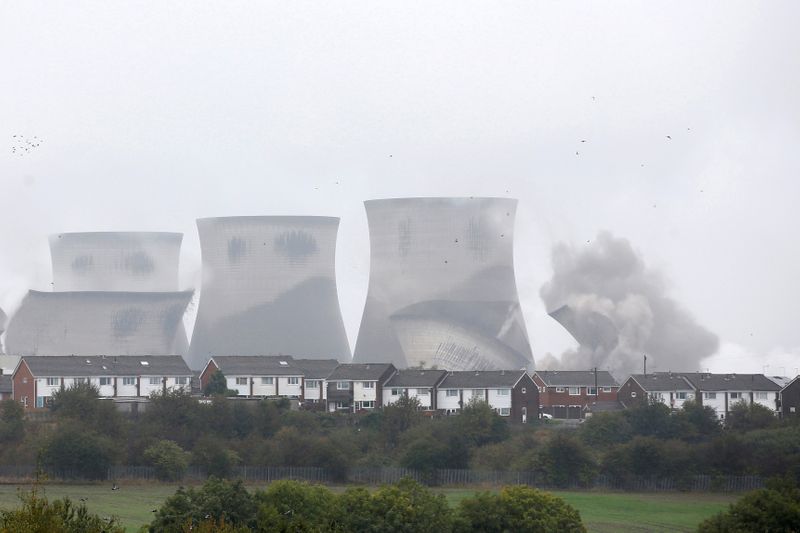By Susanna Twidale
LONDON (Reuters) - Britain will on Wednesday reach two months in a row without using electricity from coal fired power stations for the first time since its 19th century industrial revolution, according to the country’s National Grid (LON:NG).
Britain was home to the world's first coal-fuelled power plant in the 1880s, and coal was its dominant electric source and a major economic driver for the next century.
However, coal plants emit almost double the amount of carbon dioxide (CO2) - a heat-trapping gas blamed for global warming - as gas-fired power plants.
Britain plans to close coal plants by 2024 as part of efforts to reach its net zero emissions goal by 2050.
"The exact two month mark is midnight tonight (00:00 on Wednesday 10 June), which will mark 61 days (or 1,464 hours) since the last coal generator came off the system," a spokesman for National Grid’s ESO (Electricity System Operator) said via email on Tuesday.
Low power prices amid weak industrial demand due to measures to contain the novel coronavirus, and levies on carbon emissions, have made it increasingly unprofitable to run coal plants.
Use of renewable power, such as wind and solar, has soared over the lockdown period, helped by lower running costs than fossil fuel producers and favourable weather conditions.
May saw the greenest ever month for electricity production in Britain, with the lowest average carbon intensity on record at 143 grams of CO2 per kilowatt hour, National Grid said.

Carbon intensity is a measure of how much carbon dioxide is emitted for each kilowatt hour of electricity produced.